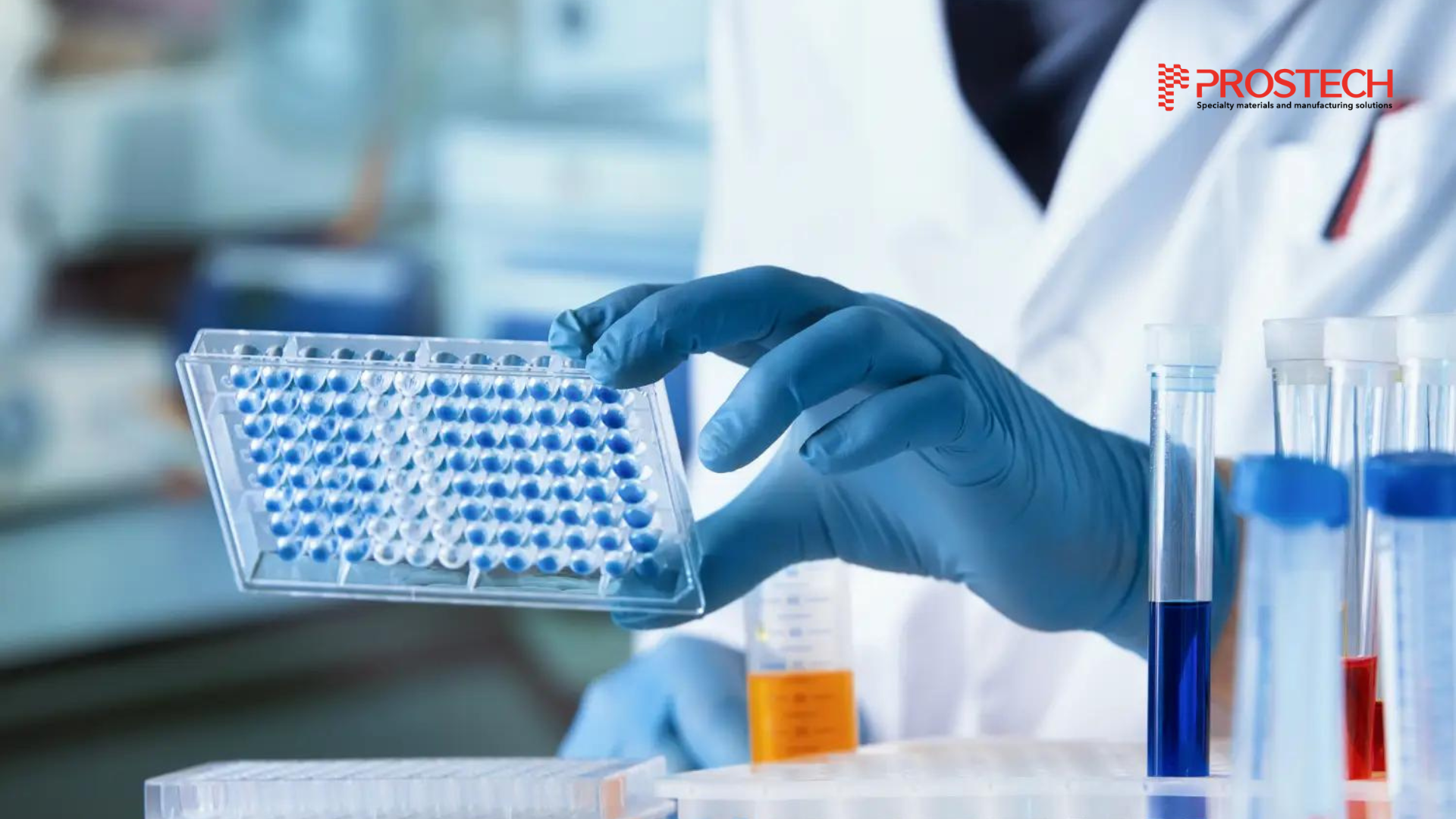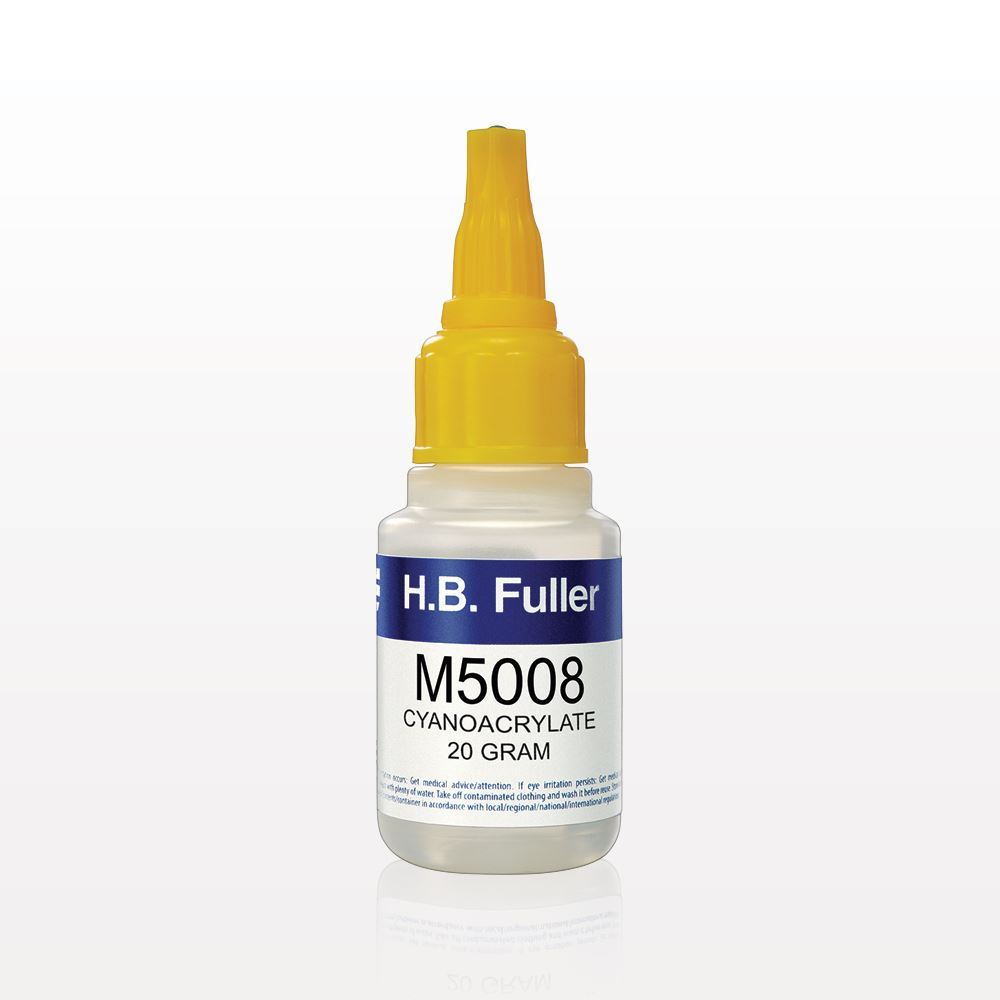A biocompatible adhesive is designed for safe use in medical applications involving contact with biological tissues or fluids. These adhesives adhere to rigorous biocompatibility standards to prevent adverse reactions such as toxicity, inflammation, or allergies when used in medical devices or procedures. In simpler terms, biocompatibility tests ensure that materials or devices do not trigger immune responses, focusing on safety rather than chemical compatibility, as outlined by the FDA’s definition of medical devices.

Solutions for Medical Devices Assembly
Choosing the right material during the design process gives manufacturers more confidence in an FDA approval. Biological reactivity testing is one such process used for determining suitability and safety, ISO 10993 and USP class VI are two main tests that indicate if a material is biocompatible or not. But first, let’s understand what is FDA Approval.
Food and Drug Administration (FDA) Approval for Medical Devices

The Food and Drug Administration (FDA) is the regulatory body in the United States responsible for ensuring that medical devices are safe and effective for use. While the FDA does not grant certification or approval specifically for adhesives used in the manufacturing of medical devices, it requires comprehensive testing and documentation to demonstrate that a product meets all safety and efficacy requirements.
Most medical device manufacturers that use adhesives in their devices require these adhesives to meet USP Class VI and/or ISO 10993 biomedical testing standards. These standards help demonstrate the biocompatibility of the adhesives, providing sufficient evidence for manufacturers to proceed with their own testing and certification processes required by the FDA.
ISO 10993 Biocompatibility Testing for Medical Devices

With the purpose of standardizing the biological evaluation of medical devices worldwide, the International Standards Organization (ISO) developed ISO 10993- a set of standards outlining material categories, tests, and test methods used to determine the biocompatibility of materials.
The ISO strategy categorizes medical devices by type of body contact (surface device, external communicating device, and implant device) and by contact duration (limited, prolonged, and permanent). For each resulting medical device, category ISO provides a set of suggested evaluation tests. Typical tests include:
- ISO 10993-4 Hemolysis
- ISO 10993-5 Cytotoxicity
- ISO 10993-6 Implantation 14 Days
- ISO 10993-10 Intracutaneous: Sensitization and Irritation
- ISO 10993-11 Systemic Toxicity
In general, adhesives and sealants are not required to pass all ISO tests. However, it is expected that they pass the cytotoxicity test. As a fast, standardized, sensitive, and inexpensive test, the cytotoxicity test concludes if an adhesive has any adverse effect on mammalian cells. It involves culturing cells in vitro and systematically exposing them to the material in question to see if any reactions or signs of toxicity show up over a few days.
If you need products with ISO 10993-4 certification, please contact us for a consultation. Our experts can guide you through the selection process and ensure that your adhesives meet the necessary biocompatibility standards.
USP Class VI Biocompatibility Testing for Medical Devices

Historically, standards were set by the US Pharma Convention (USP), a non-profit organization with a focus on medications, healthcare technologies, food ingredients, and materials used in medical devices. These standards categorize materials into six classes depending on the product’s specific use and duration of patient contact time (limited, prolonged, or permanent).
It includes three reactivity assessments that are usually performed in vivo on mice or rabbits to ensure accuracy.
- Acute Systemic Toxicity (Systematic Injection) Test: Measures toxicity and irritation when a sample of the compound is administered orally, applied to the skin, and inhaled.
- Intracutaneous Test: Measures toxicity and localized irritation when the sample is in contact with live subdermal tissue (specifically, the tissue that the medical device is intended to contact).
- Implantation Test: Measures toxicity, infection, and irritation of intramuscular implantation of the compound into a test animal over several days.
Adhesives and sealants that qualify for this designation are typically very safe for use in medical devices. However, materials passing the USP class VI tests are not guaranteed to be biocompatible for every application. It’s simply a strong validation that the materials used are of high quality with low levels of toxicity. Moreover, it’s crucial to note that the FDA does not mandate specific testing or approval for each component of a medical device. Even if adhesive manufacturers conduct preliminary testing on their adhesives, these adhesives still require testing on the complete device to ensure it meets biocompatibility standards. When selecting adhesives for medical devices, it is essential to consider these biocompatibility standards to ensure compliance with regulatory requirements and to enhance the reliability of medical devices.
Ready to ensure your adhesives meet biocompatibility standards? Reach out to our team today to discuss your specific needs and how we can help you achieve compliance. For more information and expert guidance, contact us today.





